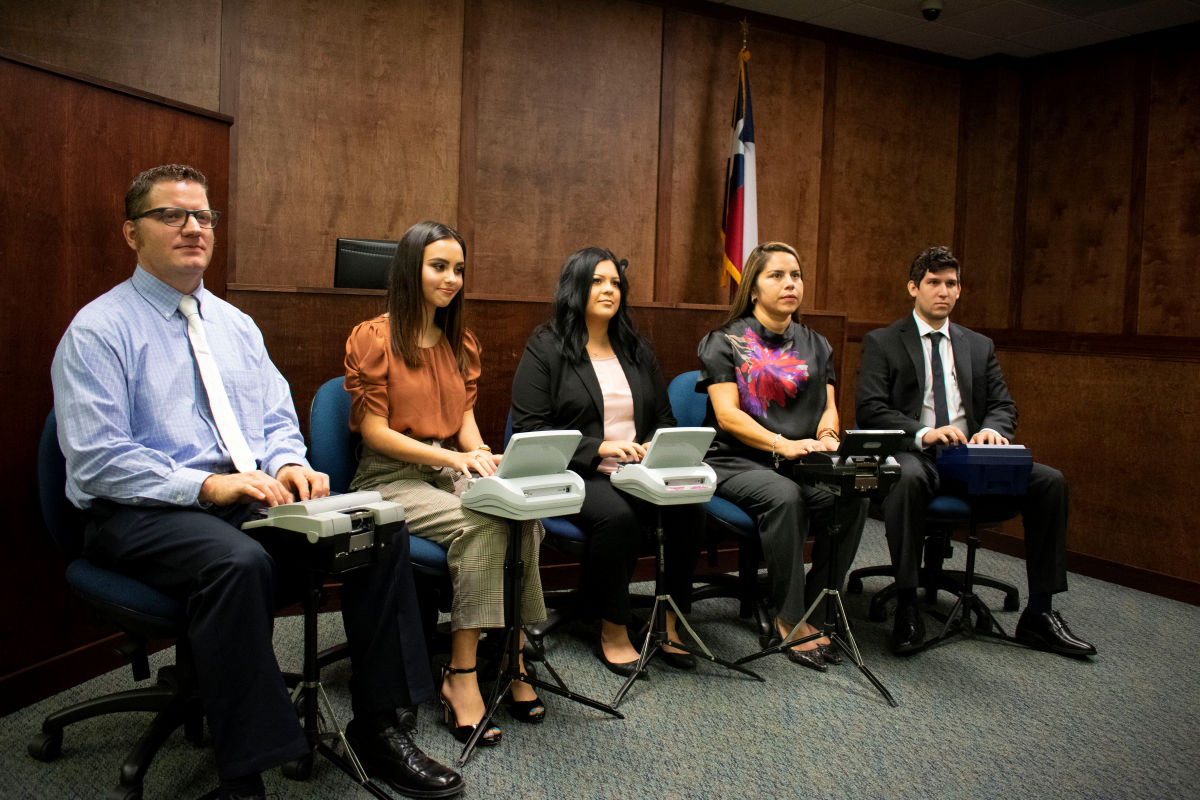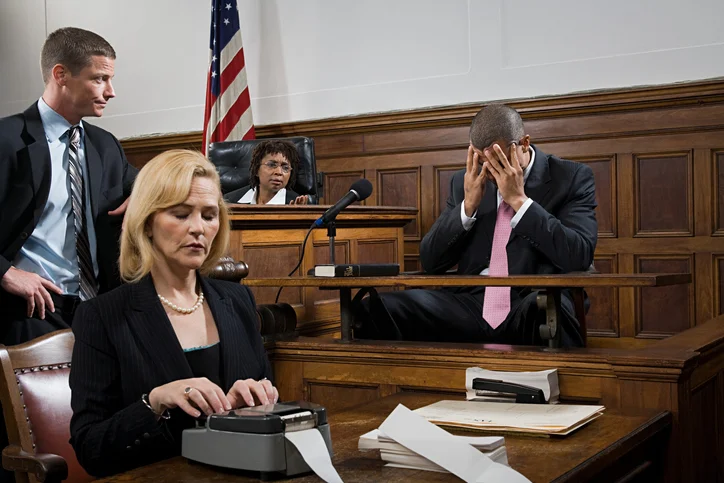Advanced Court Reporting Technology for Seamless Legal Paperwork
Advanced Court Reporting Technology for Seamless Legal Paperwork
Blog Article
Comprehending the Relevance of Court Coverage in Legal Services and Procedures
Court coverage plays an essential function in the legal landscape, serving as the backbone of accurate documentation in numerous lawful process. By giving verbatim records, court reporters guarantee that every statement and argument is meticulously captured, therefore guarding the stability of the judicial process.
Role of Court Reporters

In addition to transcription, court reporters are typically charged with managing and keeping the circulation of procedures. They need to be efficient in legal terminology and have a thorough understanding of court room procedures to guarantee that the record mirrors the context and nuances of the dialogue. Their job might also expand past conventional courtrooms, incorporating management hearings, settlements, and various other lawful settings where documents is necessary.
Furthermore, court reporters might offer real-time coverage, allowing immediate accessibility to transcripts throughout procedures, which can be critical for the reliable administration of justice. By making certain that an exact record is preserved, court reporters promote the stability of the lawful process, serving and promoting appeals as a crucial resource for lawyers in their search of justice.
Significance of Precision

The function of precision expands past plain transcription; it encompasses the ability to capture the nuances of speech, including tone, emphasis, and non-verbal hints, which can be vital in understanding the context of statements made. A precise record guarantees that all celebrations included-- judges, attorneys, and juries-- have access to the same details, cultivating justness and openness in the judicial procedure.
Additionally, precise transcripts are vital for the appellate process, where greater courts count on them to examine reduced court decisions. Errors can threaten the result of a charm, possibly impacting a party's legal rights and flexibilities. Thus, the dedication to precision in court reporting is not just a specialist commitment however a cornerstone of justice that upholds the regulation of regulation.
Sorts Of Legal Process
Treatment a broad range of lawful contexts, stenotype reporter are necessary in different sorts of lawful process, each calling for distinctive strategies and skills. Amongst the most typical types are civil lawsuits, criminal trials, and management hearings. In civil litigation, court press reporters capture testimonies, movements, and depositions, making certain that every information is recorded accurately for potential allures or negotiations.
In criminal tests, the function of court press reporters becomes a lot more vital, as they record all elements of the process, including jury choices, witness testaments, and punishing phases - Court Reporting. The precision and immediacy of these records are critical, offered the potential repercussions for accuseds and the honesty of the judicial system
Administrative hearings, commonly performed by governmental agencies, likewise count on court press reporters to preserve main records of proceedings. These hearings can include conflicts pertaining to regulatory compliance, employment problems, or professional licensing, demanding accurate paperwork.
In addition, specialized process such as arbitration and mediation call for court reporters to catch the subtleties of arrangements and arrangements. Each kind of legal action presents unique challenges, underscoring the relevance of skilled court reporters in supporting the stability of the legal procedure.
Modern Technology in Court Coverage
Improvements in innovation have changed the area of court reporting, enhancing both efficiency and accuracy in the transcription procedure. Standard techniques of hands-on note-taking have been supplemented and, in some cases, changed by innovative electronic tools that improve workflows and improve accuracy (Court Reporting). Stenotype reporter currently use advanced steno equipments equipped with real-time transcription capabilities, enabling for instant access to a verbatim account of procedures
Additionally, the assimilation of speech acknowledgment software program has actually even more transformed the coverage landscape. This technology allows the automated transcription of spoken words, substantially minimizing the moment needed for creating official records. Additionally, cloud-based systems assist in easy storage space and retrieval of transcripts, guaranteeing that attorneys can access click here now essential documents from anywhere, at any moment.
Video clip conferencing devices have also arised as important parts in remote depositions and hearings, helping stenotype reporter capture procedures in real-time, regardless of place. The mix of these technological technologies not only improves the precision of legal documents yet also supports a much more versatile and efficient lawful procedure. As the area continues to evolve, accepting these developments will be essential in satisfying the growing needs of the lawful sector.
Moral Considerations in Coverage
The combination of modern technology in court coverage brings with it a set of honest considerations that experts should browse very carefully. As stenotype reporter significantly employ electronic devices, issues surrounding precision, honesty, and discretion come to the leading edge. Shielding sensitive details is paramount; reporters must guarantee that any electronic records are securely stored and shared only with accredited individuals.
Additionally, the precision of transcriptions is crucial. Using software program for real-time coverage does not absolve court reporters from the responsibility of ensuring that the final item is specific. Ethical responsibilities dictate that any mistakes have to be without delay remedied and interacted to appropriate parties.

Last but not least, conformity with lawful criteria and sector guidelines is crucial. Court press reporters have to remain notified about evolving honest guidelines to copyright the trust placed in them by the lawful system. By resolving these honest considerations, stenotype reporter can continue to give invaluable solutions in legal procedures while keeping public confidence.
Final Thought
To conclude, court coverage plays an essential function in the legal system our website by ensuring reputable and accurate documents of judicial process. The precise work of stenotype reporter upholds use this link the integrity of the legal procedure and supports the rights of people involved. The assimilation of innovation enhances performance while preserving ethical requirements. Ultimately, the relevance of court coverage can not be overemphasized, as it offers as an essential foundation for fairness, transparency, and the effective administration of justice.
Court reporting plays a critical function in the lawful landscape, serving as the backbone of accurate documentation in numerous lawful proceedings.Court reporters constantly play an essential role in the judicial process by creating exact, verbatim transcripts of lawful process.In addition, exact transcripts are important for the appellate process, where greater courts depend on them to evaluate lower court choices.Treatment a broad array of legal contexts, court reporters are essential in various kinds of legal proceedings, each requiring distinctive techniques and skills. By dealing with these moral considerations, court press reporters can continue to give very useful services in legal process while maintaining public self-confidence.
Report this page